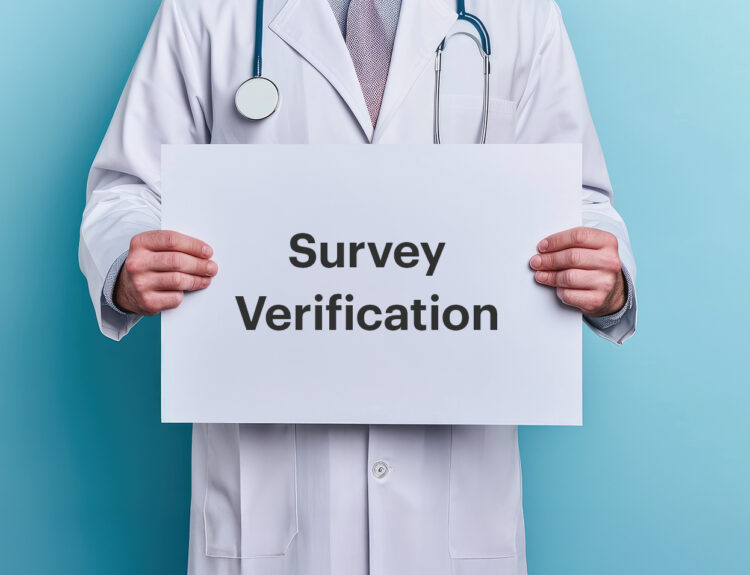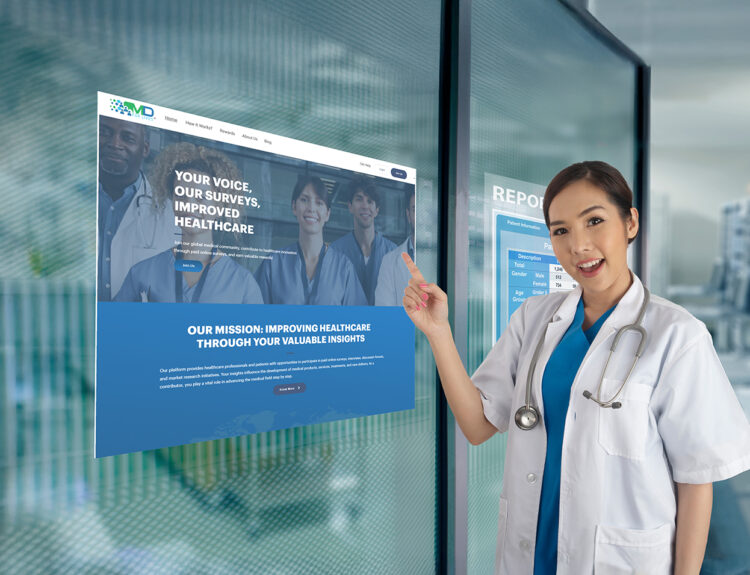You have treated countless patients, made critical decisions under pressure, and balanced clinical guidelines with real-world complexities. But when it comes to medical surveys, you are often asked to reduce that experience to a single click; maybe a checkbox or a dropdown. And yet, you know that answering a question about treatment modalities or a medicine’s efficacy is rarely that simple. This is where open-ended survey responses make a difference.
Unlike multiple-choice questions that gather surface-level data, open ended questions give you the space to share what truly matters – your reasoning, real-world experience, and patient-centered thinking. They help researchers understand the ‘why’ behind your clinical choices. When you describe how a patient responded to therapy, or why you prefer a certain diagnostic path, you are giving researchers the kind of insight that leads to smarter trials, more relevant protocols, and patient-centric innovation.
Interested to know more about open ended surveys? Keep reading!
Open Ended Survey Questions: What Makes Them ‘Important’
In simple terms, open ended responses are written answers provided in your own words, rather than selecting from a list of predefined options. For example, instead of ticking a box for “preferred treatment option,” you are asked to explain why you prefer it, how it impacts outcomes, or what your real-world experience has been.
These responses:
- Capture clinical judgment and rationale.
- Reflect firsthand experience in patient care.
- Provide nuanced perspectives that structured data often misses.
Especially among experienced healthcare professionals, open ended survey responses reveal the ‘Why’ behind the ‘What’, something multiple-choice questions simply cannot do.
Why Are Open Ended Survey Responses Important for Research Quality?
In 2025, most of the well-known pharma and med-tech companies prioritize surveys with meaningful open ended responses. Want to know why? Well, here are some of the most important reasons:
- Understand the context behind treatment decisions that healthcare professionals (from any specialty) take.
- Identify emerging real-world practices that may not yet appear in formal guidelines but reflect the current state of care.
- Discover gaps in existing therapies, as well as unmet patient or system-level needs that may be invisible in structured data.
Guide product development, clinical positioning, and marketing strategy with insights grounded in actual clinical environments.
Open ended question responses often drive the most meaningful insights in survey analysis, especially in areas where numbers alone can’t explain physician behavior or patient outcomes. In fact, surveys with high-quality open ended inputs are more likely to be referenced in internal reports, included in white papers, and used in shaping clinical trial design.
These insights allow medical researchers to see the nuances of real-world decision-making: why some physicians are early adopters of new therapies, how side effect profiles impact prescribing confidence, or what logistical barriers limit access to treatments.
For researchers, open ended medical question responses are often the “missing puzzle pieces” that help decode market behavior. For physicians like you, they are a way to contribute to your frontline expertise and ensure that your challenges, preferences, and clinical judgment are heard and respected in broader healthcare conversations.
How Poor Open Ended Survey Responses Lead to Quality Fails
By now, you are aware of how open ended responses have the potential to bring immense value. But it is equally vital to understand that those responses need to be genuine, thoughtful, and relevant. Unfortunately, many healthcare professionals often respond to open ended questions hastily, leading to quality issues that reduce the impact of the survey and affect their credibility as a panelist.
Here are some common reasons why open ended survey responses are flagged or rejected during quality checks:
1. Copy-pasting from web sources or AI tools
Answers lifted directly from articles, search engines, or language generators may appear polished. But unfortunately, these responses often fail internal checks for originality and do not reflect the “candid” clinical voice, which is what researchers are looking for.
2. Generic or empty phrases
Terms like “NA,” “good,” “depends,” or “standard treatment” without explanation offer little to no value. These are treated as placeholders rather than real answers, showing a lack of engagement or attention to the question’s intent.
3. Contradictory or off-topic responses
When your open ended response doesn’t align with your selected multiple-choice options, or discusses something completely unrelated, it raises red flags.
For instance, selecting one treatment option and describing a different one while explaining creates data inconsistencies that reduce overall survey integrity.
4. Rephrasing or repeating the question
Some responses simply echo the question with slight wording changes, without offering added information.
For example, if asked why you prefer a particular drug, answering “I prefer this drug because it is preferred by me” is both circular and uninformative.
The above-mentioned low-quality responses destroy the aim of the survey and the panelist’s credibility. Over time, consistent quality fails can lead to rejected payments, removal from premium studies, or even disqualification from future participation.
Therefore, whenever you are taking an open ended survey from a reputed platform such as MDForLives, avoid these common pitfalls and offer meaningful insights.
What Makes a Good Open Ended Response?
A strong open ended survey response will reflect a physician’s clinical thinking, his/her experience, and his/her ability to apply knowledge in real-world scenarios.
Here’s what separates a high-quality open ended response from a poor one:
1. The response should be specific and clear: If you are taking an open ended survey, avoid vague phrases like “It depends” or “varies by case” unless you explain how or why it varies. Add context that helps the reader understand your decision-making process.
2. The response should demonstrate clinical reasoning: Explain the thought process behind your choices. Even a brief explanation gives valuable insight into how you weigh options, manage risks, or tailor-made care.
Includes examples or personal experience (if applicable): Referencing the types of patients you typically treat, treatment patterns you have observed, or challenges you face in practice makes your answer more credible and useful.
3. The responses should be grammatically readable: You do not need perfect English, but your response should be coherent, well-structured, and easy to understand. Short sentences and bullet points can help improve readability.
4. The response should not contradict selected multiple-choice answers: Consistency matters. If your open ended response explains a different approach than the one selected in the MCQ, it creates confusion and reduces data quality.
Here’s an example of open ended questions in healthcare – poor vs. good:

The first response (poor one) tells us nothing about how or why treatment varies. It lacks reasoning and offers no insight into your clinical decision-making. The second one, on the other hand, is specific, practical, and reflects your clinical reasoning. It helps researchers understand what factors influence your choice and how patient context shapes your approach.
The Professional Benefits of Sharing Thoughtful Open Ended Responses
Providing thoughtful, well-articulated open ended question responses does not just help researchers but it also directly benefits physicians like you. High-quality responses reflect your clinical expertise and professionalism and set you apart in a global panel of healthcare professionals.
Here’s how your commitment to quality can open doors:
1. Get Access to Premium Research Opportunities
Panelists who consistently provide strong open ended responses are more likely to be selected for premium or longitudinal studies. These often span several weeks or months, offer higher compensation, and involve in-depth exploration of clinical trends, treatment pathways, or real-world practice patterns.
2. Invitations to Group Discussions and Expert Panels
Exceptional open ended question responses can lead to invitations for virtual advisory boards, in-depth interviews, or focused group discussions, where your insights are directly shared with stakeholders from pharmaceutical, med-tech, and policy organizations.
These opportunities often come with honorariums ranging from $100 to $500+, depending on the scope.
3. Thought Leadership and Recognition
When your response stands out for clarity, insight, and clinical relevance, it may be featured anonymously in research publications, reports, or blogs, sometimes as part of trendspotting or physician quote sections. This helps position you as a credible voice in your field, even if you are not officially named.
4. Builds Reputation as a Trusted Panelist
Consistently strong responses contribute to your internal quality score, increasing your eligibility for higher-value surveys and giving you priority access to new studies. Over time, this builds your reputation as a reliable and thoughtful expert, which can translate into more frequent invitations and greater influence on research design.
5. Contribute to Real Change
Your open ended survey responses often inform product positioning, patient education materials, treatment guidelines, and even the development of new therapies. When you take a few moments to explain your clinical reasoning or describe a patient’s case, you are helping shape better healthcare solutions at scale.
3 Simple Tips to Improve Your OE Responses (Even When Busy)
We understand that as a healthcare professional, your time is limited between patient care, documentation, and professional obligations. Responding to medical surveys or open ended questions might feel like just another task. But even with tight schedules, crafting high-quality open-ended responses is both doable and valuable.
Here’s how to enhance your inputs without spending more than a minute:
#1 Pause for 10–15 Seconds Before You Type
Once you go through the open ended survey questions, don’t rush. Take a moment to mentally frame your response. Ask yourself two things:
- What was the key reason behind that clinical decision?
- What did I observe in my patients that supports this?
This short reflection helps prevent vague answers and allows you to provide something meaningful.
#2 Focus on the “Why” and “How”
Your response becomes valuable when it explains the reasoning behind your choices. Therefore, go beyond what you did. Explain why you chose a particular treatment and how it applies to real-world patients. This adds clinical depth and makes your answer more actionable for researchers.
So, instead of:
“I prescribe Drug A because it works.”
Try:
“I prescribe Drug A in younger patients because it improves adherence and has fewer GI side effects compared to Drug B.”
#3 Quickly Proofread for Typos or Repetition
Before you hit “submit,” scan your response. Typos, repeated phrases, or fragmented sentences can make your response unclear or look rushed, even if your point is strong. One quick read-through can significantly boost the professionalism and clarity of your answer.
Remember, Your Words Carry Weight.

Every time you respond to an open ended survey, you are doing more than just completing a task. You are literally contributing to the evolution of healthcare sector (whether it’s continent wise, or globally). Your insights have the power to shape treatment protocols, uncover unmet clinical needs, refine patient education strategies, and guide pharma or med-tech innovations.
Pharmaceutical and medical device companies increasingly rely on these real-world, open ended survey responses to understand what works and what doesn’t, outside the constraints of textbooks and clinical trials. Your real-life perspectives help them bridge the gap between theory and practice.
So, the next time you see an open ended survey, see it as an opportunity and not a chore. It’s a moment to make your voice heard and your clinical expertise count.

MDForLives is a global healthcare intelligence platform where real-world perspectives are transformed into validated insights. We bring together diverse healthcare experiences to discover, share, and shape the future of healthcare through data-backed understanding.






